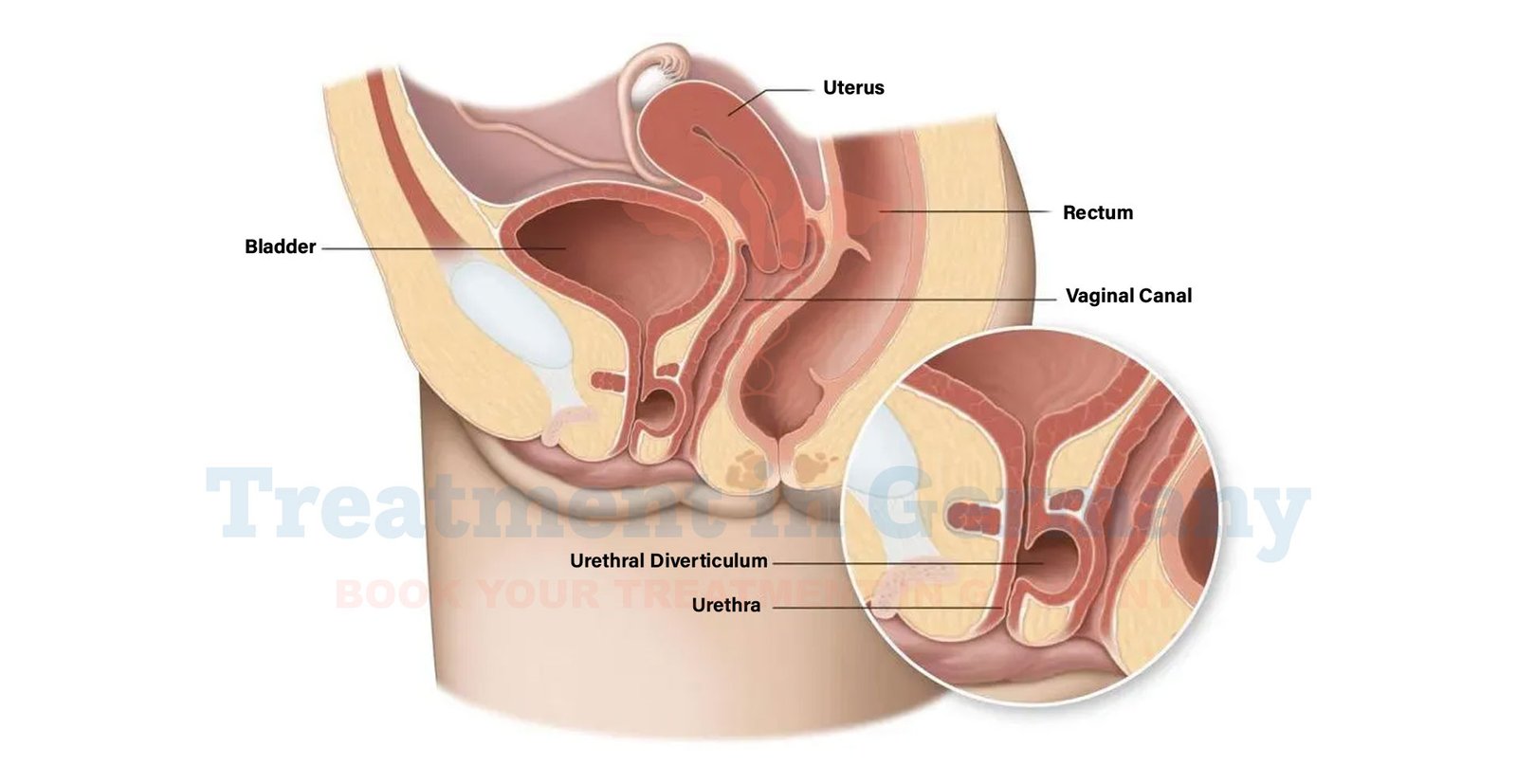What is Urethral Diverticulum?
A urethral diverticulum is a condition where a pouch or sac forms in the wall of the urethra, the tube that carries urine from the bladder out of the body.
This pouch can collect urine and sometimes becomes infected or inflamed. It’s often associated with symptoms such as urinary leakage, frequent urinary tract infections, or discomfort.
Side Effects of Urethral Diverticulum
The side effects of a urethral diverticulum can vary depending on its size and severity. Common issues include:
- Frequent Urinary Infections: The diverticulum can trap urine, leading to recurrent infections.
- Pain or Discomfort: Patients may experience pain during urination or discomfort in the pelvic area.
- Urinary Leakage: The pouch can cause involuntary leakage of urine.
- Difficulty Emptying the Bladder: The presence of the diverticulum might interfere with normal bladder emptying.
How is Urethral Diverticulum Diagnosed?
Diagnosing a urethral diverticulum typically involves a combination of medical history, physical examination, and diagnostic tests. In Germany, patients may undergo:
- Medical History and Symptoms Review: The doctor will ask about symptoms and medical history to understand the issue better.
- Physical Examination: A pelvic examination may be performed to check for signs of a diverticulum.
- Imaging Tests: Ultrasound or MRI can help visualize the diverticulum and assess its size and impact.
- Urodynamic Studies: These tests evaluate bladder function and can provide additional insights into how the diverticulum affects urinary flow.
Potential Treatment of Urethral Diverticulum
Treatment options for a urethral diverticulum depend on the severity of symptoms and the impact on the patient’s quality of life. In Germany, treatment strategies might include:
- Medication: Antibiotics or other medications may be prescribed to manage infections or inflammation.
- Surgical Intervention: For persistent or severe cases, surgery may be necessary to remove the diverticulum and repair the urethra. This can often be done using minimally invasive techniques.
- Follow-Up Care: Regular follow-up is crucial to monitor the condition and prevent recurrence.
👉 Contact us for further information and receive a complimentary consultation.


.webp)
 (1).webp)

.webp)
 (1).webp)


.webp)
 (1).webp)

.webp)
 (1).webp)
